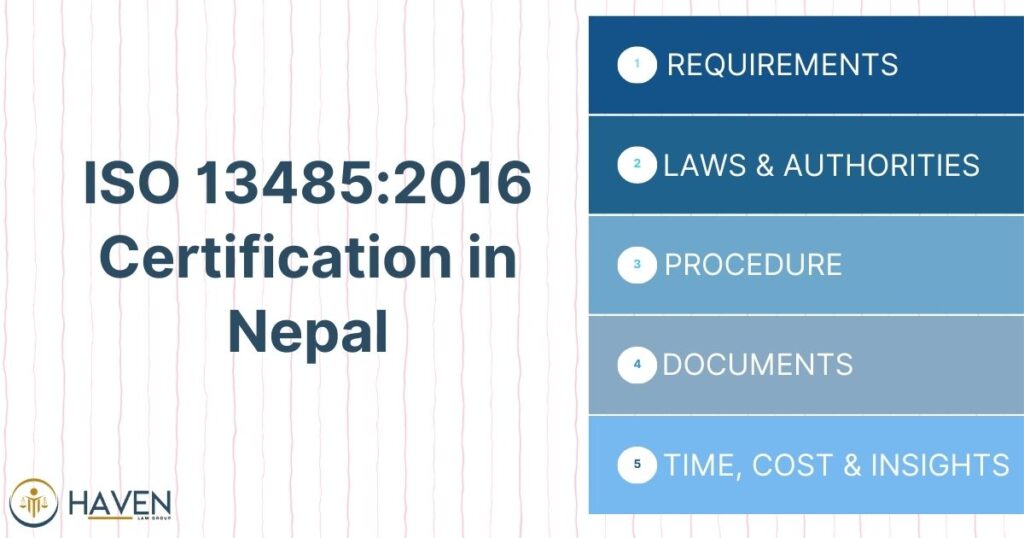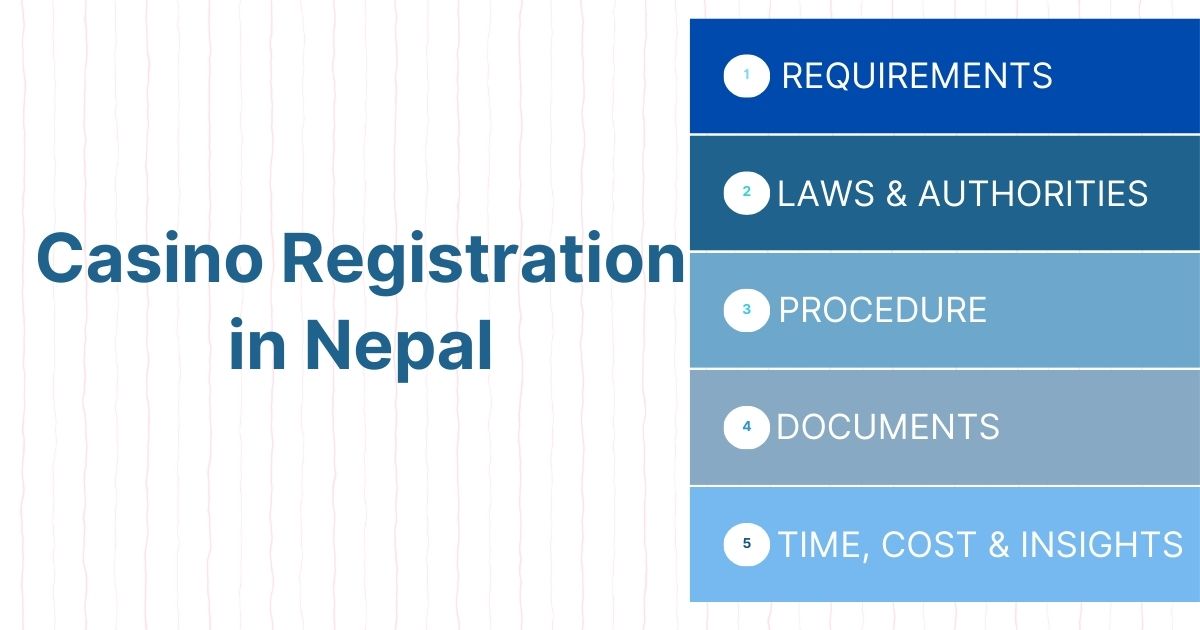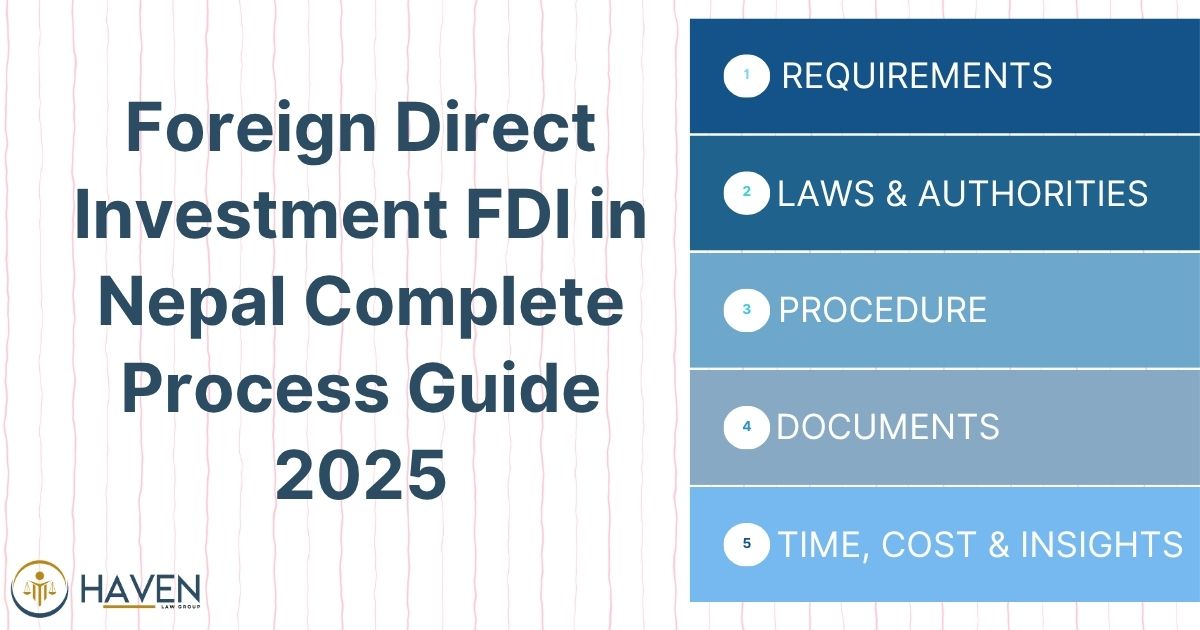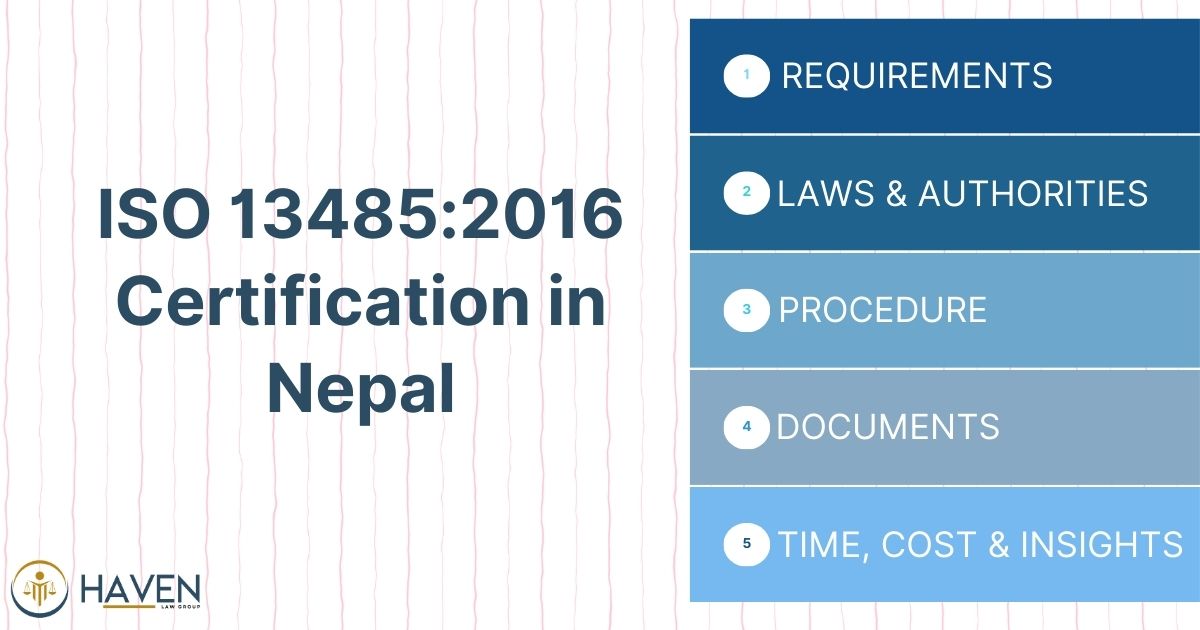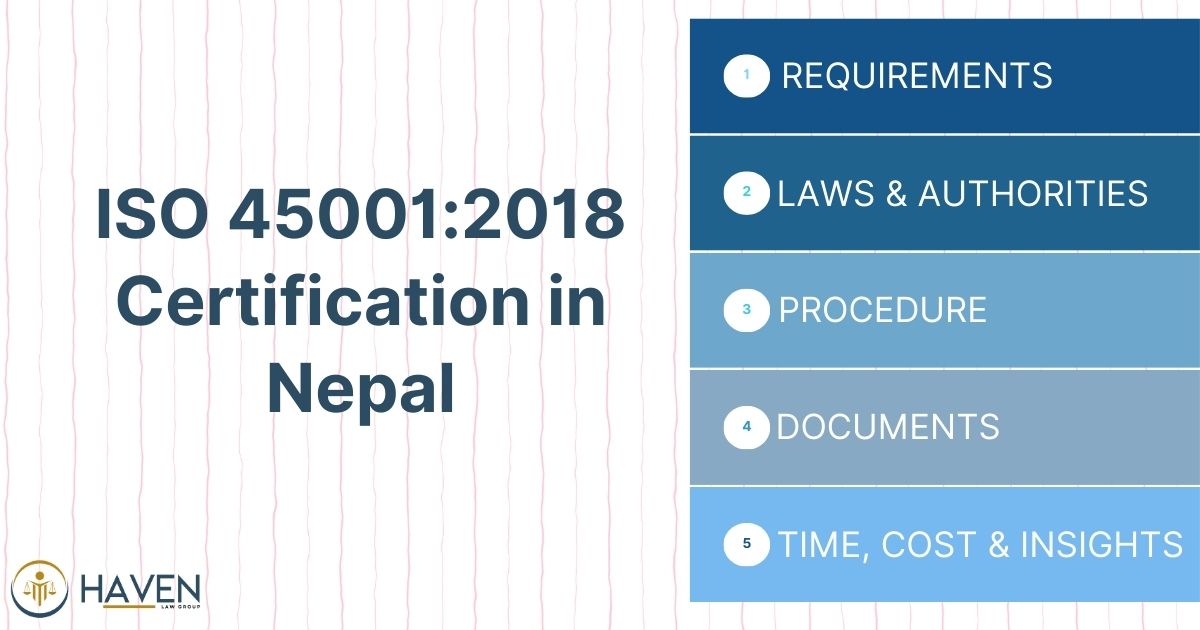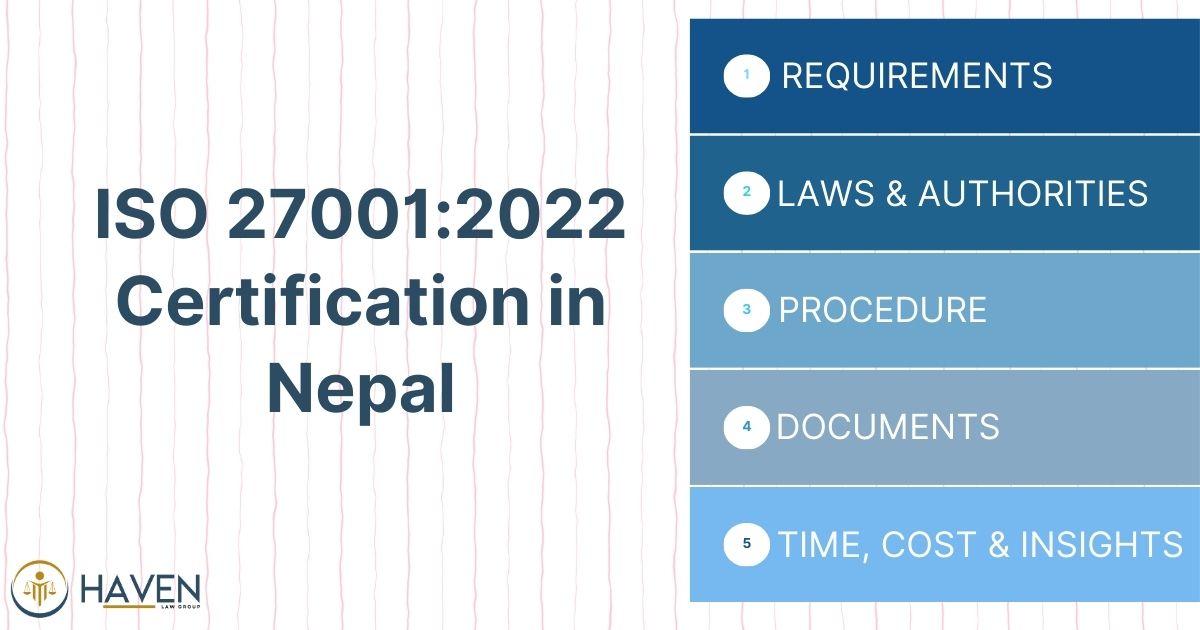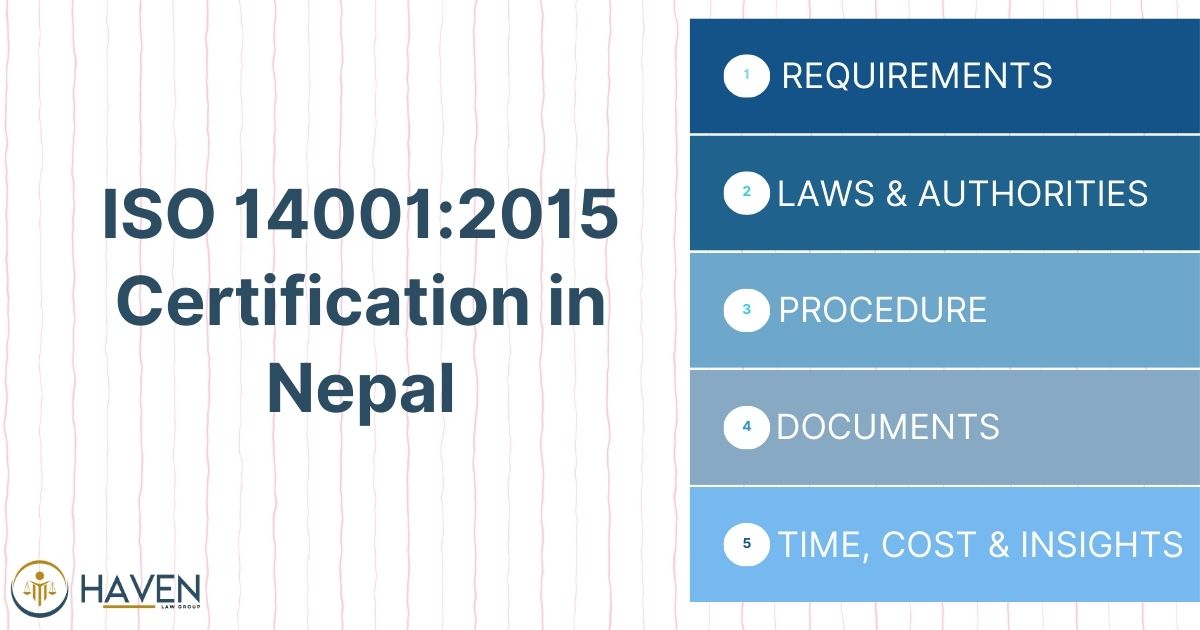Introduction
ISO 13485:2016 certification is one of the most important international standards for organizations involved in the design, production, installation, and servicing of medical devices. It sets requirements for a comprehensive quality management system (QMS) tailored to the medical device industry. In Nepal, as the healthcare and medical manufacturing sectors continue to expand, obtaining ISO 13485:2016 certification has become a necessity for companies seeking to ensure product safety, meet regulatory compliance, and build trust among patients and stakeholders.
This article provides a comprehensive guide to ISO 13485:2016 certification in Nepal, covering its meaning, requirements, processes, benefits, challenges, and relevance for businesses operating in the medical and healthcare industry.
What is ISO 13485:2016?
ISO 13485:2016 is an international standard that specifies requirements for a Quality Management System (QMS) for medical devices. Unlike general quality standards such as ISO 9001, ISO 13485:2016 is industry-specific and focuses heavily on regulatory compliance, product safety, and risk management.
The main objectives of ISO 13485:2016 include:
- Ensuring medical devices consistently meet customer expectations and regulatory requirements.
- Establishing a structured quality management system for the entire lifecycle of medical devices.
- Enhancing risk management and traceability of devices.
- Providing a framework for continuous improvement in healthcare and medical manufacturing organizations.
Importance of ISO 13485:2016 Certification in Nepal
The healthcare sector in Nepal has been growing steadily, with an increased demand for safe and reliable medical devices. Hospitals, diagnostic centers, laboratories, and import-export businesses all rely on internationally compliant products. ISO 13485:2016 certification ensures Nepali companies can meet international benchmarks.
Key reasons ISO 13485:2016 certification is important in Nepal:
- Regulatory Compliance – Ensures businesses meet national and international medical device regulations.
- Market Access – Helps Nepali businesses export devices to countries that require ISO 13485:2016 compliance.
- Patient Safety – Guarantees safe medical devices for patients and healthcare providers.
- Business Reputation – Enhances credibility and trust among customers, hospitals, and government institutions.
- Competitive Advantage – Differentiates certified organizations from uncertified competitors.
Scope of ISO 13485:2016 Certification
The certification applies to organizations involved in any stage of the medical device lifecycle, including:
- Design & Development of medical devices.
- Production and Manufacturing of devices and equipment.
- Installation and Servicing of devices.
- Storage and Distribution of devices.
- Suppliers of components and raw materials.
This wide applicability means that both large-scale manufacturers and small distributors in Nepal can benefit from ISO 13485:2016 certification.
Key Requirements of ISO 13485:2016
To achieve certification, organizations must meet specific requirements, including:
- Quality Management System – Establish and maintain a documented QMS.
- Management Responsibility – Define leadership roles, responsibilities, and accountability.
- Risk Management – Implement risk-based thinking in all stages of device lifecycle.
- Product Realization – Ensure controlled processes from design to delivery.
- Measurement, Analysis, and Improvement – Monitor, measure, and continuously improve systems.
- Traceability – Maintain records for device components, suppliers, and distribution.
- Regulatory Compliance – Align with local and international laws governing medical devices.
Step-by-Step Process of ISO 13485:2016 Certification in Nepal
Achieving certification in Nepal involves several stages:
1. Gap Analysis
Evaluate existing systems against ISO 13485:2016 requirements to identify areas of improvement.
2. Documentation Preparation
Prepare QMS documents including quality manual, procedures, and records.
3. Implementation
Apply documented procedures across departments and train employees.
4. Internal Audit
Conduct internal audits to verify compliance and readiness for external review.
5. Management Review
Company leadership reviews QMS performance to ensure effectiveness.
6. Certification Audit
An independent auditing body evaluates the organization’s compliance with ISO 13485:2016.
7. Certification Decision
Upon successful audit, the organization receives ISO 13485:2016 certification.
8. Surveillance Audits
Periodic follow-up audits ensure ongoing compliance.
Benefits of ISO 13485:2016 Certification in Nepal
1. Improved Product Safety
Minimizes risks related to faulty medical devices.
2. Regulatory Recognition
Simplifies approvals for medical devices in Nepal and abroad.
3. Global Market Entry
Essential for exporting medical devices to international markets.
4. Operational Efficiency
Reduces errors, rework, and waste.
5. Customer Trust
Strengthens relationships with hospitals, clinics, and distributors.
6. Continuous Improvement
Encourages ongoing enhancements in quality systems.
Challenges for ISO 13485:2016 Certification in Nepal
Although beneficial, organizations in Nepal may face challenges such as:
- Lack of awareness about ISO standards.
- Limited technical expertise in medical device QMS.
- Resource constraints for small businesses.
- Maintaining regulatory compliance in a changing environment.
However, with proper planning and training, these challenges can be overcome.
Industries in Nepal Benefiting from ISO 13485:2016
ISO 13485:2016 certification is relevant for:
- Medical device manufacturers.
- Pharmaceutical companies involved in device production.
- Diagnostic centers and laboratories.
- Import-export businesses dealing with medical devices.
- Healthcare equipment suppliers and distributors.
Future of ISO 13485:2016 Certification in Nepal
With Nepal’s increasing focus on healthcare infrastructure, ISO 13485:2016 certification will play a major role in shaping the future of medical device manufacturing and distribution. As the government strengthens healthcare regulations, certification will become more of a necessity than an option.
The trend also indicates that more Nepali companies will seek certification to expand globally and compete with international brands.
SEO Keywords for Optimization
To make this article SEO-friendly, here are target keywords and phrases included:
- ISO 13485:2016 Certification in Nepal
- Medical device certification Nepal
- ISO 13485 Nepal requirements
- Quality management system for medical devices
- ISO certification for healthcare companies in Nepal
- Benefits of ISO 13485 certification
- Process of ISO 13485 certification Nepal
Conclusion
ISO 13485:2016 certification in Nepal is a vital standard for businesses in the medical device industry. It ensures product safety, strengthens compliance, improves customer trust, and enables global trade. As Nepal’s healthcare sector continues to grow, organizations that adopt ISO 13485:2016 certification will gain a strong competitive advantage.
By following a structured approach, investing in training, and maintaining regulatory compliance, Nepali businesses can achieve and sustain this prestigious certification, positioning themselves as trusted contributors to the healthcare industry.
